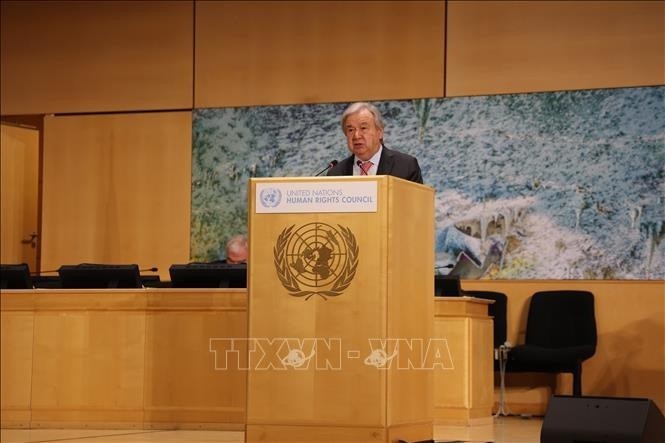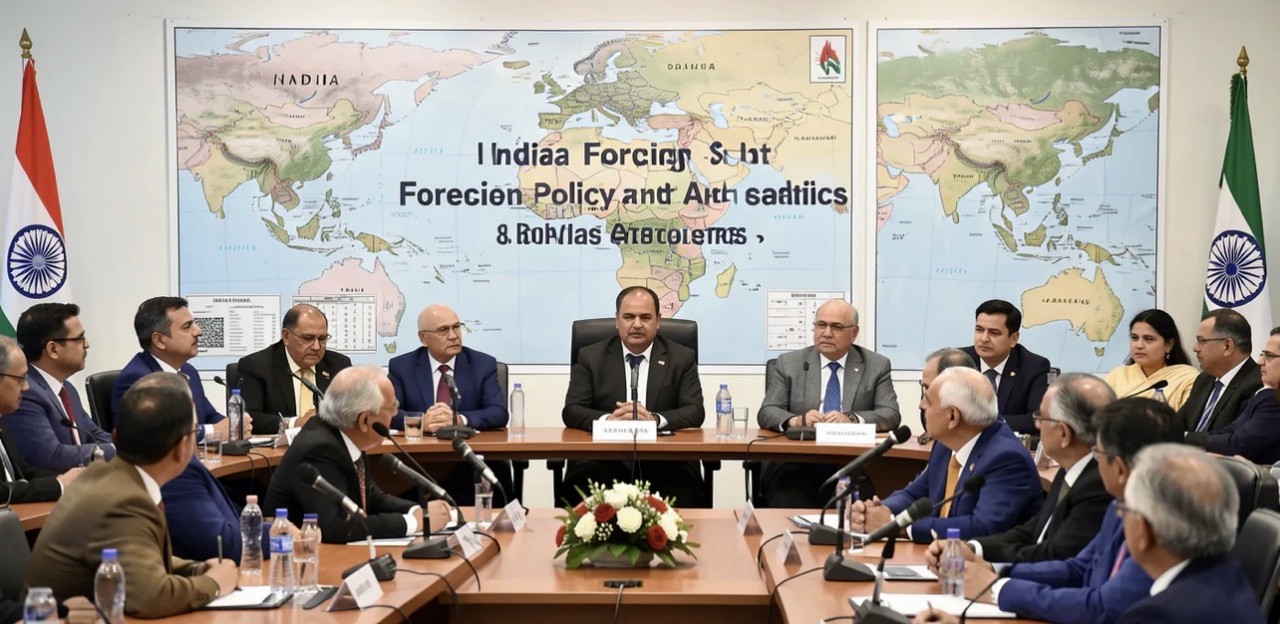India’s Crucial Role in Canada’s Economic Well-being and Prosperity
 |
India has played a consistent and constructive role in supporting Canada’s economic stability and long-term growth through multifaceted engagement. The Indian diaspora, student community, and businesses contribute significantly to Canada’s entrepreneurial ecosystem and consumer demand. Bilateral trade and investment have grown steadily, driven by mutual economic interests, sectoral complementarities, and strategic dialogues like the Ministerial Dialogue on Trade and Investment (MDTI).
While geopolitical tensions have occasionally surfaced, economic relations between the two democracies remain pragmatic and forward-looking. India’s expanding global footprint and Canada's Indo-Pacific orientation provide a strategic basis for deeper collaboration in trade, education, energy, and innovation.
India–Canada Economic Relations
India and Canada share a broad-based and increasingly dynamic economic partnership. Bilateral trade reached US USD 9.36 billion in FY2024–25, up from USD 6.1 billion in FY2016–17, reflecting a 53% growth in under a decade. Indian exports have diversified beyond traditional pharmaceuticals and textiles into machinery, electronics, chemicals, and automobiles. Canada’s exports to India mainly comprise pulses, fertilizers, crude oil, wood pulp, and minerals. While India accounts for around 0.93% of Canada’s global trade, it remains a key emerging-market partner under Canada’s Indo-Pacific Strategy.
High-level engagements have propelled negotiations on a Comprehensive Economic Partnership Agreement (CEPA), with an interim Early Progress Trade Agreement (EPTA) in active discussion. CEPA aims to liberalize goods, services, and investment flows. Though political friction in 2023 temporarily slowed momentum, both sides have maintained that trade and investment should continue to grow on economic merit. With robust sectoral complementarities and a growing consumer base, India and Canada have strong foundations for deeper economic integration.
India’s Support to Canada’s Economy
The Indian diaspora, numbering approximately 2 million, is one of Canada’s largest immigrant communities and plays a vital role across professions—healthcare, IT, academia, real estate, and small business. Their entrepreneurial spirit boosts job creation, supports tax revenue, and enhances Canada’s multicultural workforce.
Indian students in Canada are another cornerstone. With over more than one lac students in Canada contributing more than C $ 5 billion annually through tuition and living expenses. Their presence supports the education sector and local economies while also creating a future workforce trained in Canadian systems and values.
Indian companies have also increased their footprint in Canada. Firms like Tata Consultancy Services, Infosys, Tech Mahindra, and Wipro have expanded operations, employing Canadians and collaborating on AI, cloud computing, and cybersecurity. In parallel, Canadian pension funds and companies like Brookfield, Fairfax, and CPPIB have made long-term investments in Indian infrastructure, fintech, and real estate sectors, reinforcing two-way economic flows. India’s overall engagement strengthens Canada’s innovation ecosystem, urban development, and global trade reach, serving as an economic stabilizer in times of uncertainty.
India–Canada Trade Relations
India–Canada merchandise trade has witnessed steady expansion over the past eight years. The following table outlines exports, imports, total trade, and trade balance in USD billion.
India–Canada Investment Relations
Investment flows form the backbone of long-term economic cooperation between India and Canada. According to Canadian government data, Indian FDI stock in Canada reached approximately USD 8.99 billion in 2022, covering sectors such as IT services, telecom, automotive, hospitality, and pharmaceuticals. Indian companies have also opened innovation centers and delivery hubs across Canadian cities, employing thousands of skilled workers.
Conversely, Canadian FDI in India stood at USD 4.25 billion as of 2022, concentrated in infrastructure, green energy, insurance, and capital markets. Leading institutional investors like Brookfield, CPPIB, and Caisse de dépôt et placement du Québec (CDPQ) have made strategic investments in Indian real estate, toll roads, renewable energy, and logistics parks. Brookfield alone has deployed over USD 7 billion in Indian assets.
Canada also ranks among the top sources of foreign portfolio investment (FPI) in India, with significant holdings in banking, energy, and tech sectors. Future CEPA agreements could boost cross-border investor protection, taxation clarity, and dispute resolution mechanisms—further enhancing bilateral investment confidence.
Futuristic Outlook of India–Canada Economic Relations
The future of India–Canada economic ties is marked by both optimism and strategic alignment. A CEPA or EPTA, once concluded, is expected to dramatically improve market access, reduce tariffs, and open avenues in services, digital trade, and professional mobility. India’s vibrant startup ecosystem and Canada’s innovation economy in AI, biotechnology, and clean energy present synergies for new-age economic diplomacy.
Education and skill mobility will play a key role, with expanded visa programs and mutual recognition of qualifications likely to deepen labor integration. Joint ventures in critical minerals (like lithium, cobalt) and renewable energy will help both countries reduce their carbon footprints and transition to sustainable growth.
Additionally, e-commerce platforms, SME linkages, and fintech alliances can enable small businesses to internationalize. With growing diaspora linkages and regional trade ambitions, India and Canada are well-positioned to build resilient and diversified supply chains, away from dependency on single markets like China. As both nations embrace inclusive, rules-based trade, their economic convergence promises a long-term partnership for prosperity and global stability.
Conclusions
India’s contribution to Canada’s economy is extensive and evolving, from the vibrancy of its diaspora to the dynamism of its businesses and students. India has emerged as a vital partner offering growth, diversification, and resilience. Bilateral trade has doubled in less than a decade, and investment flows remain strong across multiple sectors. The potential finalization of a trade agreement like CEPA can elevate this relationship to new heights.
As two democracies with shared values and complementary strengths, India and Canada are poised for a deeper economic partnership, one that not only supports national prosperity but also contributes to a more stable, diversified, and inclusive global economy.
Recommended
 World
World
High-Level Segment of 61st Session of the UN Human Rights Council Opens in Geneva
 World
World
US Media Commend Vietnam’s Role in Global Peace Efforts
 World
World
Vietnam Officially Becomes Association Country of International Energy Agency (IEA)
 World
World
Key pacts signed as PM Modi hosts France's Macron for plane cooperation
 World
World
India, Canada commit to strengthening bilateral ties, discuss trade
 World
World
AI Summit India 2026 Live Updates: ‘Bringing the world together,’ PM Modi welcomes leaders as India hosts AI summit
 World
World
Safran ready to open India engine production in Rafale deal
 World
World
